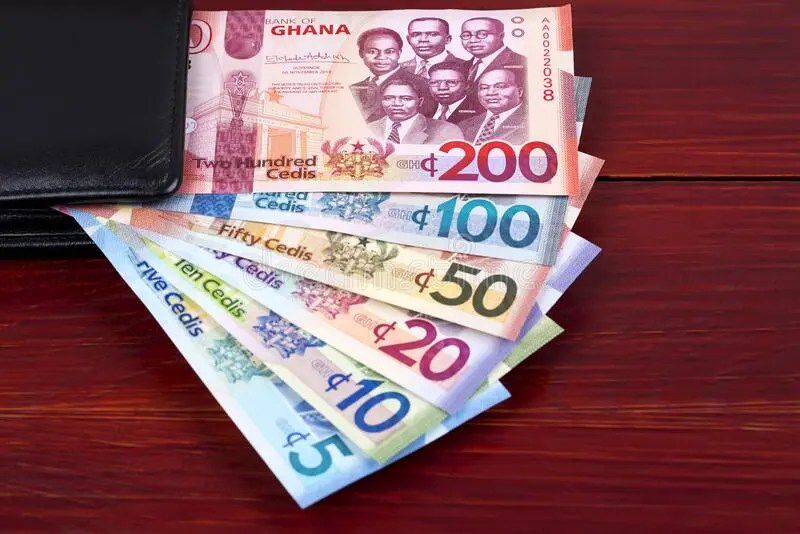The Ghanaian cedi experienced minor fluctuations against major international currencies on Friday, January 31, 2025, according to data compiled from various sources, including Cedirates.com, a trusted platform for currency and fuel updates in Ghana. Against the US dollar, the cedi saw a marginal depreciation, with the buying rate dropping by 1 pesewa to GHS15.16, while the selling rate remained steady at GHS15.57. This indicates a slight increase in the cost of acquiring dollars for businesses and individuals. Forex bureaus, which cater to smaller transactions, offered slightly less favorable rates, with the cedi trading at GHS15.45 for dollar purchases and GHS15.90 for dollar sales. This difference reflects the added margin incorporated by forex bureaus.
The interbank market, where larger financial institutions trade currencies, presented a tighter spread between buying and selling rates. The cedi traded at GHS15.29 for buying dollars and GHS15.31 for selling dollars. This smaller spread is characteristic of the interbank market due to the larger volumes traded and lower transaction costs. Against the British pound, the cedi traded at an average of GHS18.78 when exchanging pounds for cedis and GHS19.46 when converting cedis to pounds. The euro also saw a similar trend, with average exchange rates of GHS15.65 for exchanging euros for cedis and GHS16.29 for the reverse transaction.
The Bank of Ghana’s interbank market provided a benchmark for pound and euro exchange rates. The pound was selling at GHS19.08, slightly lower than the average forex bureau rate, while the euro was trading at GHS15.97, also slightly lower than the average forex bureau rate. This difference highlights the role of the central bank in influencing currency exchange rates and providing stability within the financial system. The Bank of Ghana’s intervention in the forex market helps to regulate the fluctuations of the cedi against major international currencies, promoting smoother international trade and investment.
For international money transfers, popular platforms like LemFi and Afriex offered competitive rates for remittances from the US or the UK to Ghana. Both platforms offered a rate of GHS15.25 per dollar, making them attractive options for individuals sending money to Ghana. For pound transfers, LemFi provided a rate of GHS18.96, while Afriex offered a slightly higher rate of GHS19.34. Euro transfers saw Afriex offering GHS15.89 per euro, while LemFi provided a marginally lower rate of GHS15.83 per euro. These digital remittance platforms provide a convenient and often cost-effective alternative to traditional money transfer methods.
The rates offered by LemFi and Afriex were generally more favorable than those available at forex bureaus, reflecting the efficiency and lower overhead costs associated with digital platforms. This competition benefits consumers by providing more choices and potentially lower costs for international money transfers. The increasing prevalence of these digital platforms is contributing to the evolution of the remittance landscape, making it easier and more accessible for individuals to send and receive money across borders.
Finally, for digital subscriptions to services like Netflix, Spotify, and Apple Music using Visa and Mastercard, the exchange rate was fixed at GHS17.45 per dollar. This rate, higher than the prevailing market rates, likely includes fees and charges associated with international card transactions. The fixed rate simplifies the payment process for users but may also represent a premium compared to other currency exchange methods. The use of a fixed rate for these transactions provides predictability for consumers, allowing them to budget accurately for their digital subscriptions, regardless of short-term fluctuations in the currency market.














